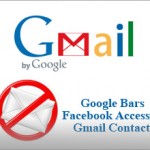 Redmond, Washington — Software monopolist Microsoft said today it has rolled out its new social search, Bing consolidation with Facebook, a feature that can reveal profiles and updates from your Facebook friends as part of your Bing search results. The launch includes details announced in October, along with minor changes.
Redmond, Washington — Software monopolist Microsoft said today it has rolled out its new social search, Bing consolidation with Facebook, a feature that can reveal profiles and updates from your Facebook friends as part of your Bing search results. The launch includes details announced in October, along with minor changes.
The new Bing — Facebook social layer consolidation has been in the works since mid-October, but the techs at Bing fine-tuned the feature before yesterday’s roll-out, according to a post on the official Bing blog.
The association was originally touted as a feature that would connect search results with “likes” from a user’s Facebook friends. Bing automatically recognizes that a user is logged into Facebook, and then presents more personalized recommendations based on both the user’s search and their Facebook friends’ interests.
The consolidation commences with a new “liked by your Facebook friends” module within Bing search results that surfaces data from Facebook. So, for instance, if a user searches for a restaurant in Seattle, Bing will bring up its usual search results and also bring up a restaurant or two the user’s Facebook friends have recently liked. They should be available to all U.S. Users.
“We looked for a way to respect the sharing intent you have with your friends inside Facebook, and use that to deliver a similarly powerful experience inside Bing,” Paul Yiu, group program manager for Bing, said in a blog post.
Bing also exhibits Facebook profiles when users search for a name. Until this point, name searches displayed people based on prominence; if a user had a friend with the same name as someone famous, Bing returned results about the famous person. That is changing.
But since testing out the integration, Microsoft has made a few changes related to privacy.

Bing’s new social search lets you access the profiles of your Facebook friends. (Credit: Bing)
Information that is shared is ascertained by a user’s privacy settings. During testing, however, users said they wanted an experience on Bing that was similar to that found on Facebook. “Specifically people were disappointed when they did not see their friends show up in their searches,” Yiu wrote.
As a result, “you will show up in profile searches on Bing, even if you have selected not to have profile information show up on public search engines,” Yiu added. “This is similar behavior to the way Facebook works.”
Hence, the software giant fine-tuned this enhancements, striving to find a balance between returning Facebook users in search results, while also respecting their sharing limitations.
Here is what Microsoft said about the changes:
Assuming you have selected to share information with your friends inside Facebook, you will show up in profile searches in Bing, even if you have selected not to have profile information show up in public search engines. This is similar behavior to the way Facebook works. It’s important to note that you will not show up in Web searches on major search engines including Bing, just in Facebook Profile Searches within Bing conducted by your friends or friends of friends.
Facebook requires users to be 13 years of age or older to join the service. Bing originally limited profile search results to people 18 and older. Our customers told us is that if they already had a Facebook friend relationship with a person under 18, they would like those people to surface in Bing’s results as well. So we have changed that feature to allow any Facebook user who has these features active to show up in searches for their friends or friends of friends, which is more like the experience customers have within Facebook.
Facebook chief Mark Zuckerberg said during the October launch event that private information will not be shared. “Nobody can see any information about you that 500 million people cannot see if they go to your profile,” he said.
“We believe these changes will make the experience better for customers, allowing them to bring their friends with them into the Bing experience, making search more social, more personal, and more useful,” Yiu said.
Bing said these new features do not affect the way users can access and change their privacy settings, and it will continue to listen to user feedback.
Moreover, the social consolidation will be activated by default. But if you go to Bing, and you are logged into Facebook too, you will get a pop-up window that gives you the option to opt out or learn more. If you do nothing, the window will stop appearing after five times. You can also turn off Bing’s access to your public Facebook information in your Facebook privacy settings.


